China has a rich and diverse wine culture that spans thousands of years, encompassing a wide range of traditional alcoholic beverages, rituals, and customs. From rice-based wines to grape-based spirits, Chinese alcohol culture reflects the country's history, geography, and social traditions.
One of the most iconic aspects of Chinese alcohol culture is the tradition of toasting and sharing drinks during meals and gatherings. Toasting, often accompanied by the phrase "Gan Bei" (meaning "bottoms up"), is a way to express camaraderie, respect, and good wishes among friends, family, and colleagues.

Huangjiu
Huangjiu, also known as "yellow wine" in English, is a traditional Chinese alcoholic beverage with a long history. It is made from the fermentation of grains, most commonly rice, although other grains like glutinous rice, millet, and wheat can also be used.
Huangjiu is known for its slightly sweet and mellow flavor, often accompanied by subtle floral or fruity notes. The production process involves fermenting the grains with the help of naturally occurring yeast and microorganisms. The result is a rich and aromatic wine that can vary in color from pale yellow to amber.
This type of wine has deep cultural roots and is enjoyed in various social settings, ranging from family gatherings to festive occasions. It is also used in Chinese cooking to add flavor and complexity to dishes. In some regions, Huangjiu is heated and served warm, enhancing its aroma and making it a popular choice during colder seasons.
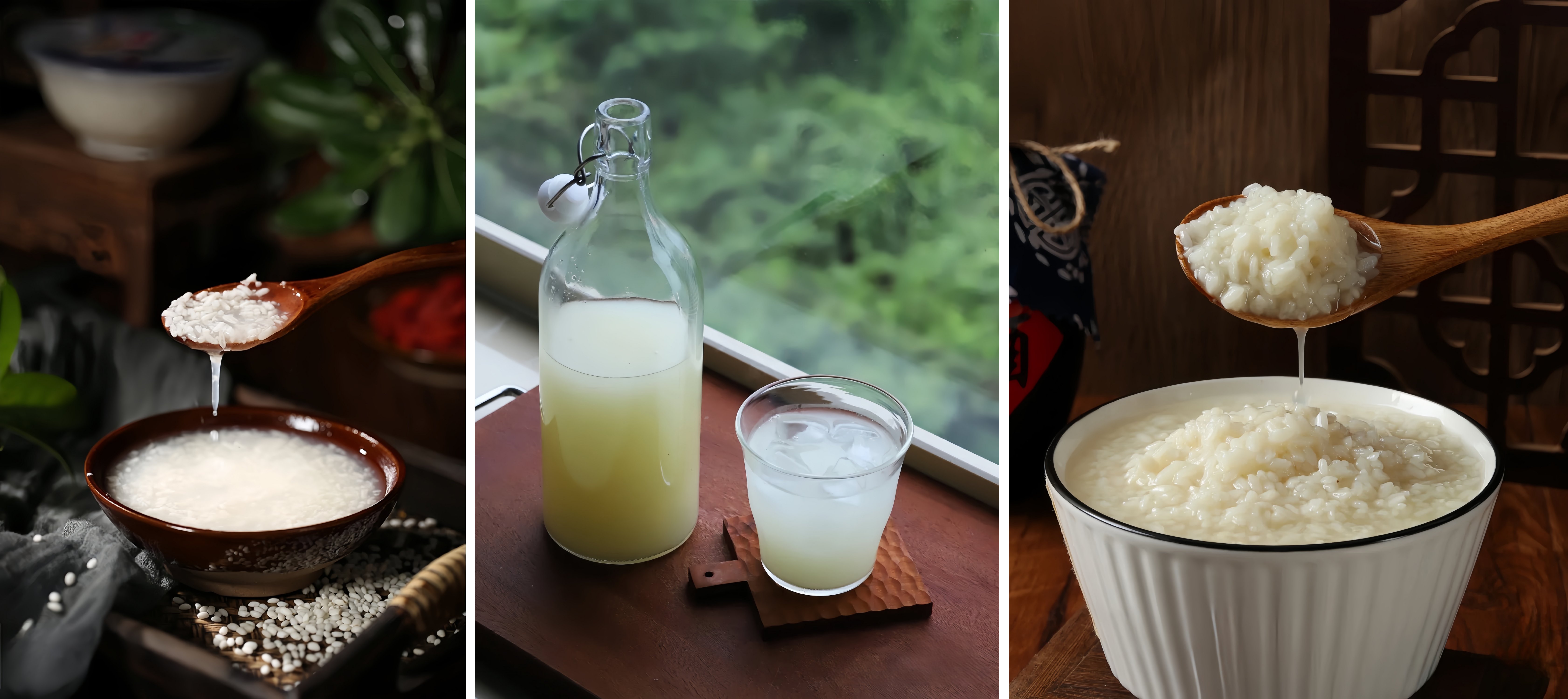
Rice Wine
Rice wine, a traditional alcoholic beverage of Chinese origin. It is made from fermented rice grains and has a slightly sweet, refreshing flavor. Rice wine has a unique flavor that varies depending on the production method and ingredients used.
Rice wine has been a part of Chinese culture for centuries and is used in a variety of ways, either on its own or to enhance the flavor of various dishes.
In addition to this, rice wine has an important cultural significance and is often associated with celebrations and gatherings.
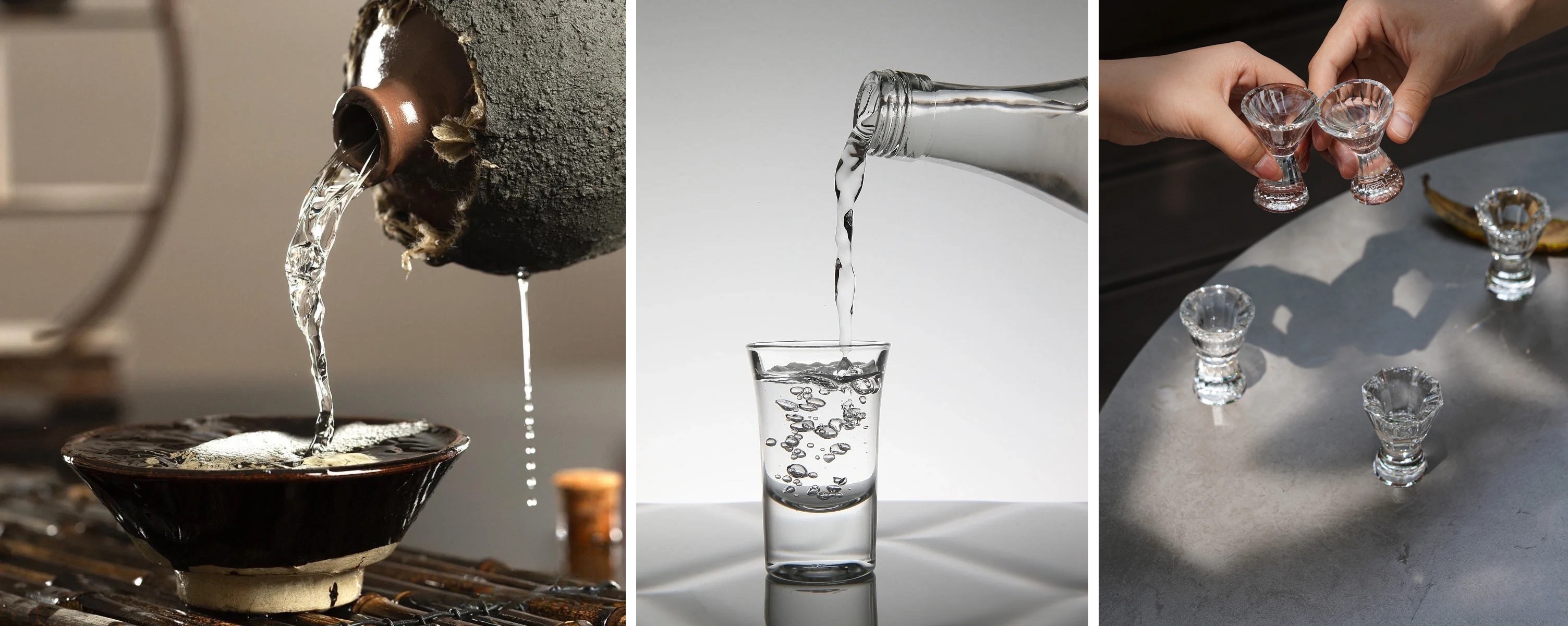
Baijiu
Baijiu, often referred to as "white liquor" or "white spirits," is a strong and traditional Chinese distilled alcoholic beverage.
It is known for its potent flavor and is commonly enjoyed during social gatherings, celebrations, and formal occasions. Baijiu is produced through a complex process that involves fermenting grains such as sorghum, rice, wheat, or barley, followed by distillation. The result is a high-proof spirit that can have alcohol content ranging from 40% to 60% or even higher.
This spirit holds deep cultural significance in China and has been a part of Chinese tradition for centuries. It is often associated with toasting and camaraderie, playing a central role in business meetings, banquets, and family reunions. Baijiu is typically consumed in small cups or shots during these occasions.
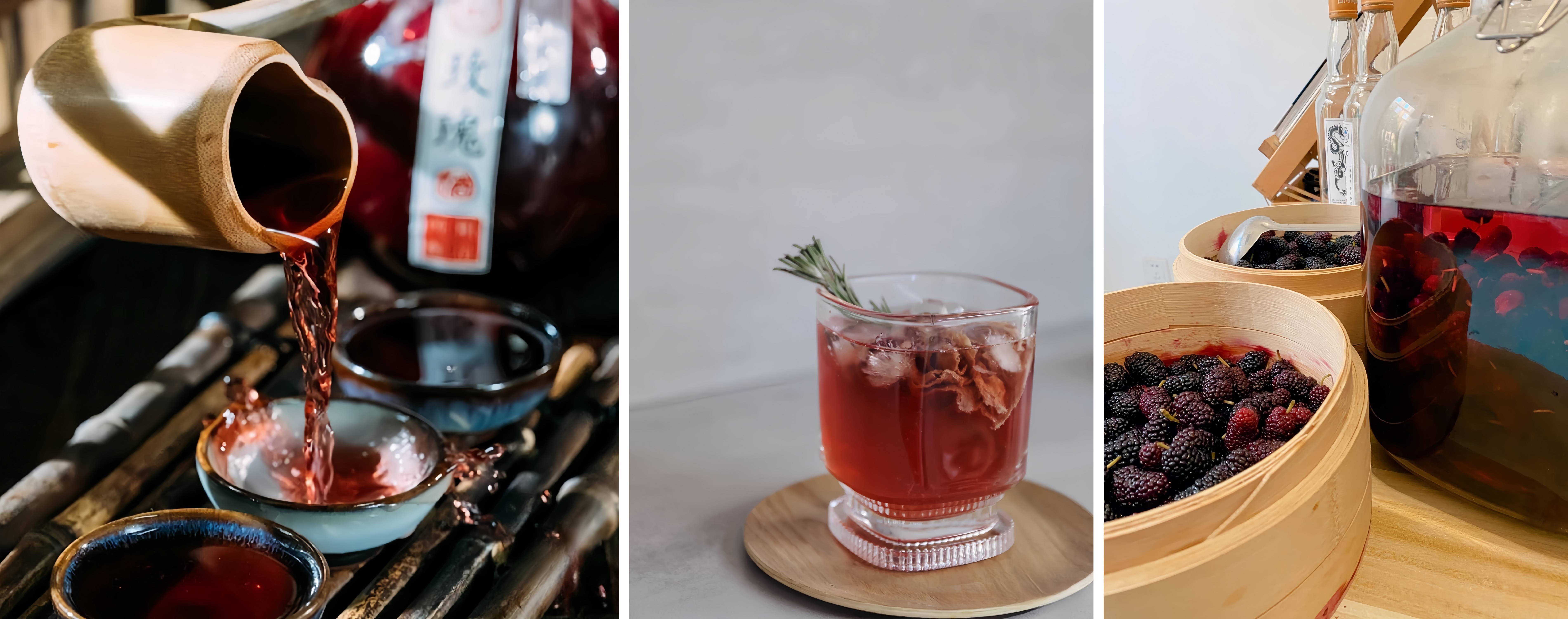
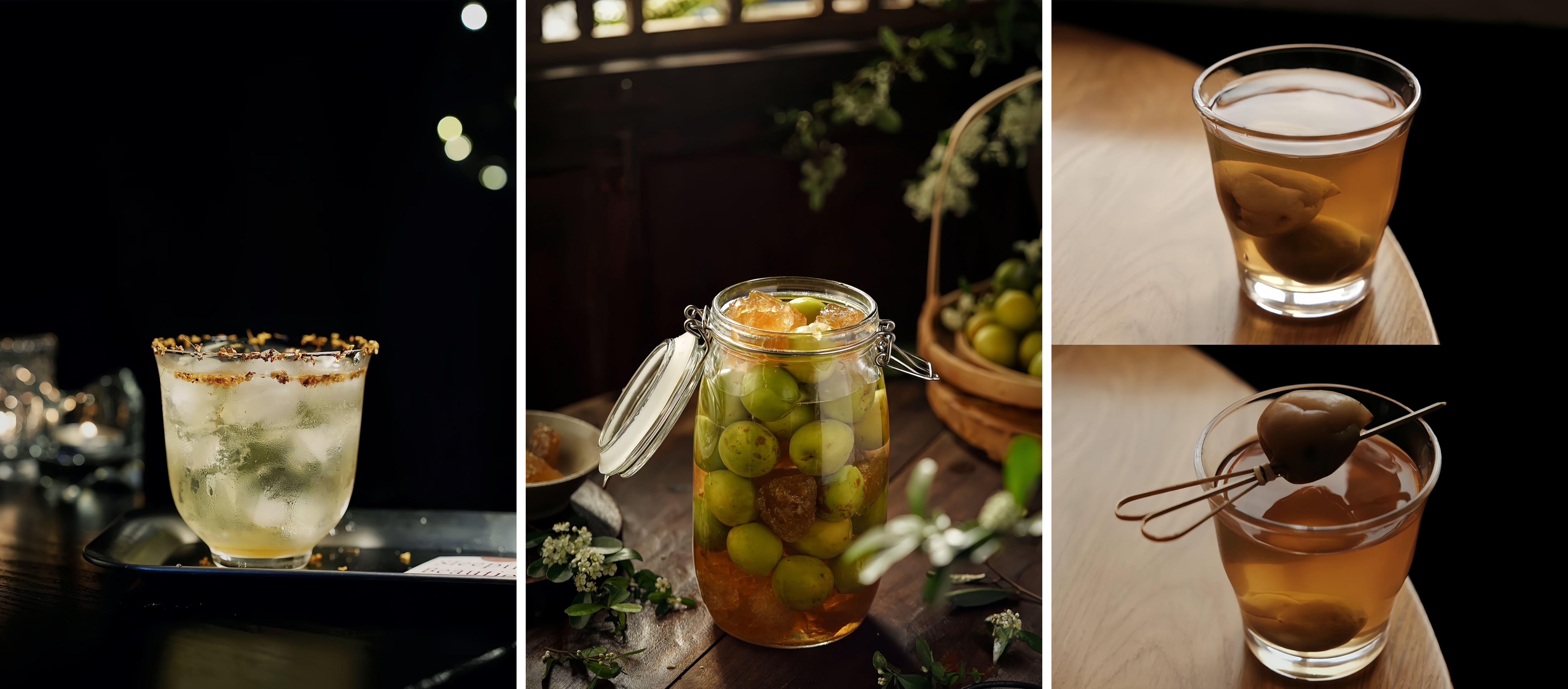
Flower wine / Fruit wine
Flower wine, or "hua jiu" in Chinese, is a type of alcoholic beverage infused with various flowers. It is a delicate and aromatic drink that captures the essence of the blossoms used in its preparation.
To make flower wine, edible flowers such as osmanthus, chrysanthemum, rose, or jasmine are often steeped in a base liquor, such as rice wine or grape wine. Over time, the flowers impart their fragrant flavors to the alcohol, creating a unique and refreshing taste. Flower wines are typically enjoyed as a sipping drink, served either chilled or at room temperature. They are known for their subtle floral notes, light sweetness, and soothing qualities, making them a popular choice for relaxation and leisurely enjoyment.
Fruit wine is a delightful alcoholic beverage crafted from the fermentation of various fruits. It offers a diverse range of flavors, from sweet and tangy to rich and complex, depending on the fruit used.
Popular fruit choices include grapes, apples, peaches, and berries. Fruit wines are enjoyed for their vibrant taste and can be sipped on their own or paired with a variety of foods. They provide a refreshing and enjoyable alternative to traditional grape wines, showcasing the natural essence of different fruits in every sip.
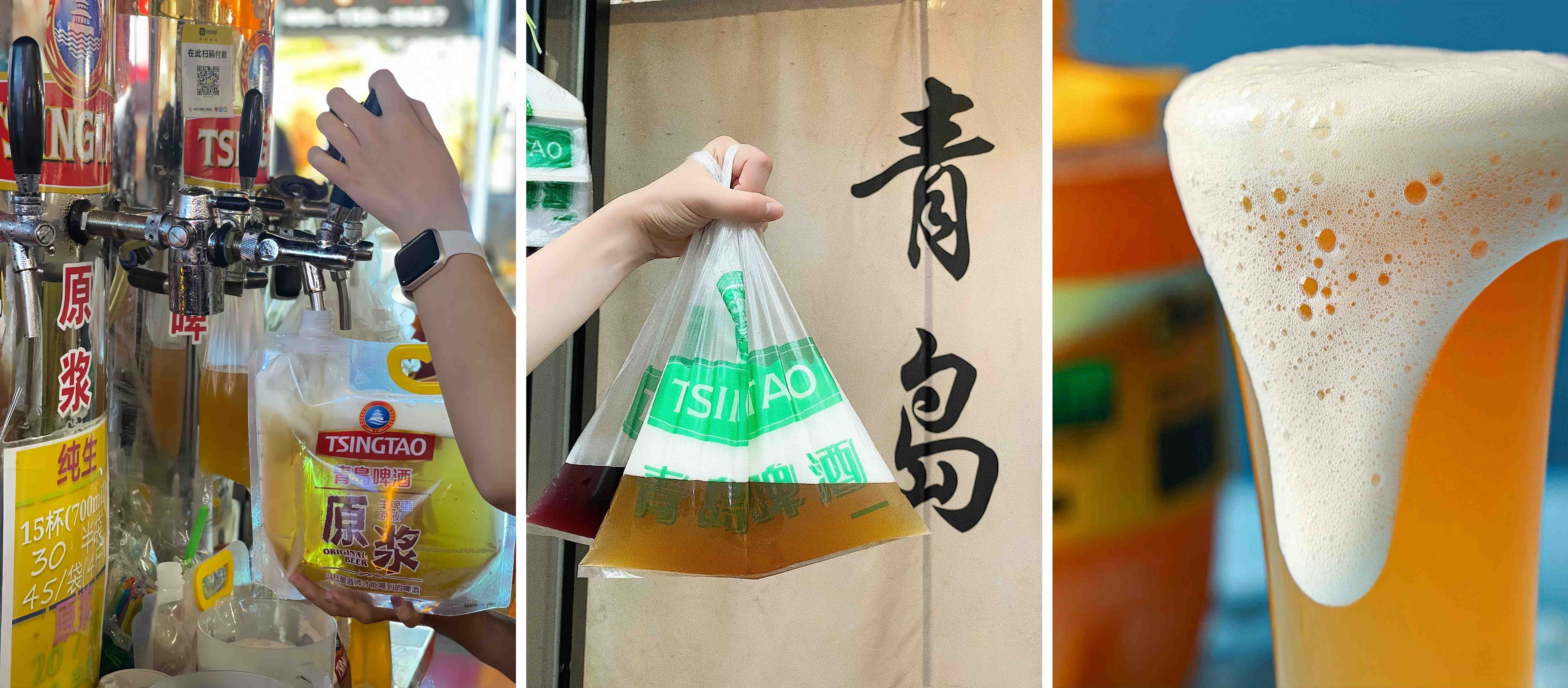
Beer in China
Often referred to as "pijiu" in Mandarin, Chinese beer has become an important and widely consumed beverage in China. With China's rapid economic growth and changing lifestyles, Chinese beer has become increasingly popular.
Chinese breweries produce a wide variety of beers, ranging from light pale ales to more robust and flavorful beers. These beers are usually brewed according to traditional brewing methods using malted barley, hops, water and yeast.
In the case of Tsingtao, for example, most Chinese beers are light beers. In addition to barley, Chinese beers usually contain rice, sorghum, and sometimes rye. Some beers use bitter melon instead of hops as a bittering agent.